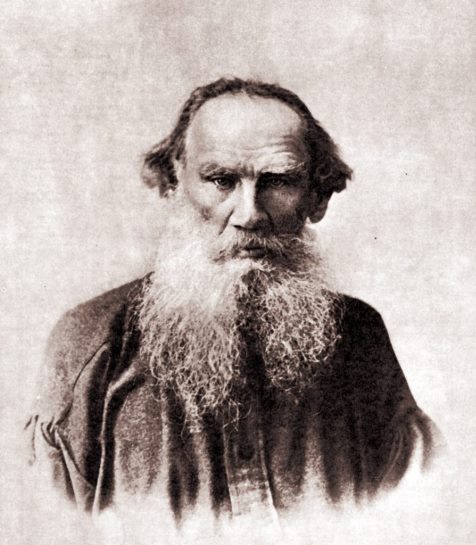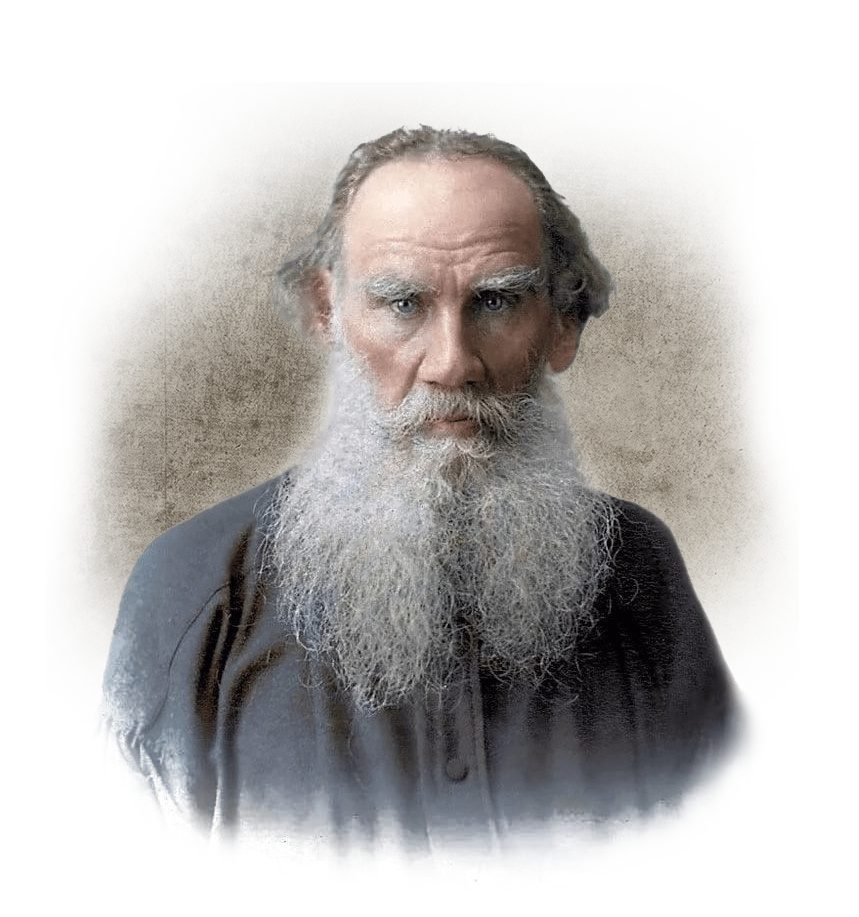
10.12.2022
Leo Tolstoy had no higher education and did not aspire to it. He studied at Kazan University for only 3 years. He started reading the Enlighteners and decided that he did not need a university, he could educate himself. And he did.
He had a turbulent youth, but mature Tolstoy was alien to the desire for scattered secular life. He lived all his life on his estate, going out as needed and having guests at his place. He had been abroad only twice, he was interested in education system. He was disappointed in the western way of life and unpleasantly affected by the contrast between wealth and poverty.
The writer fought in the Caucasus for three years, then took part in the defence of Sevastopol. He showed courage and nobility, and was decorated. But due to his character, he could not continue his career as an officer. He gave up the George Cross in favour of a soldier so that he could receive a pension for life.

Tolstoy had an unusual hierarchy of values: not vertical but horizontal, so one Russian hippie referred the writer to his subculture. When asked about his innermost desire, Tolstoy replied: “I want to love everyone and have everyone love me”. The usual response is to talk about moving upwards – wealth, success and so on. He did not want fame, but “to make a great impact in the happiness and benefit of people”.
All his life he was engaged in organizing the life of the peasants. He tried to free them before the reforms, founded a school in Yasnopolyansk, wrote books for peasants’ children, sometimes taught himself, was engaged in charity, showed attention to the needs of the peasants. No wonder the peasants loved their Earl, ran to the Dno station in crowds, dragged him dead in their arms to Yasnaya Polyana, and when, after the October revolt, the Reds came to smash up the estate, chased them away.
Leo Tolstoy is the most famous writer to have refused the Nobel Prize. He was the first to refuse. Recognised as the patriarch of European literature, he published his work for free a long time ago. It’s said that he did it precisely because of the money, but he could have done without the money, limiting himself to the medal. I think he understood his unique place in literature, and all striving for success seemed to him ‘vanity of vanities and vanity of all kinds’.
Leo Tolstoy was a living, sinful man. But always he strove for spiritual perfection. With the outwardly monotonous routine life, he led an intense, full of drama inside life, has developed its teachings (Tolsto), the main ideas of which were publicity and non-resistance to evil with violence. He wanted to give all his money to the peasants and live with his family in poverty and simplicity, but Sophia Adreevna was against it. Tolstoy later renounced all property, giving it to his wife and children. A severe mental crisis led to his excommunication, which he courageously accepted. Tolstoy had a talent for compassion. Like Voltaire, he helped humiliated and insulted people. At a later age he became a vegetarian.
Tolstoy was utterly devoid of vanity. His colossal fame gave him no pleasure whatsoever. And yet he was the idol of the intelligentsia. People went to Yasnaya Polyana like to Mecca – it was a place of pilgrimage. He received mountains of letters. Students came in the hope of seeing him through the bars of the fence from afar in the depths of the garden. At the end of his life he was deeply unhappy and decided to leave home. Tolstoy’s drama is the drama of a man who strove for perfection and did not achieve it, masterfully able to create a second reality but suffering from the impossibility to change the first. Leo Tolstoy died on the road – a symbol of his whole life.




